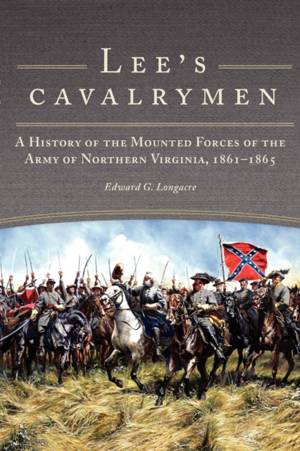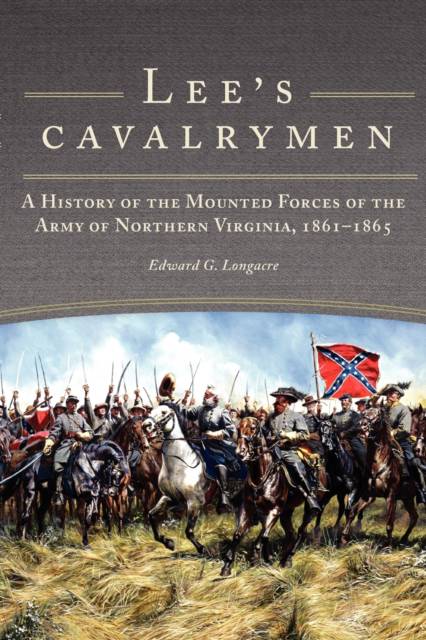
- Afhalen na 1 uur in een winkel met voorraad
- Gratis thuislevering in België vanaf € 30
- Ruim aanbod met 7 miljoen producten
- Afhalen na 1 uur in een winkel met voorraad
- Gratis thuislevering in België vanaf € 30
- Ruim aanbod met 7 miljoen producten
Zoeken
Lee's Cavalrymen
A History of the Mounted Forces of the Army of Northern Virginia, 1861-1865
Edward G Longacre
Paperback | Engels
€ 37,45
+ 74 punten
Omschrijving
"A major work . . . Longacre succeeds brilliantly in showing us a crucial, much-tested force."-Publishers Weekly Since the first histories of the Civil War appeared after Appomattox, the cavalry has received intermittent, uneven, and even romanticized coverage. Historian Edward G. Longacre has corrected this oversight. In Lee's Cavalrymen, Longacre not only details the organizational, administrative, and operational history of the mounted arm of the Army of Northern Virginia but also examines the personal experiences of officers and men. Longacre chronicles the salient characteristics of the regiments, brigades, and divisions, and explores the evolution of cavalry leadership, with emphasis on the personalities, interpersonal relationships, and operational styles of J. E. B. Stuart, Wade Hampton, Fitzhugh Lee, and other influential commanders. In his exhaustive research, the author has consulted dozens of collections of letters, diaries, and memoirs by cavalrymen of all ranks. Careful study of North Carolina, Virginia, and Georgia newspapers unearthed rare cavalry-specific dispatches. The author has left no stone unturned, and is the first historian to make extensive use of an unpublished memoir of Gen. Wade Hampton, Stuart's second-in-command. Well known for challenging conventional wisdom, Longacre also offers a provocative analysis of the mounted army's organization, leadership, and tactics. Lee's Cavalrymen is a study that no Civil War enthusiast will want to miss. Edward G. Longacre is the author of numerous articles and twenty-four books on the Civil War, including The Cavalry at Gettysburg, winner of the Fletcher Pratt Award for best nonfiction book on the Civil War, and Gentleman and Soldier: A Biography of Wade Hampton III, winner of the Douglas Southall Freeman History Award.
Specificaties
Betrokkenen
- Auteur(s):
- Uitgeverij:
Inhoud
- Aantal bladzijden:
- 500
- Taal:
- Engels
Eigenschappen
- Productcode (EAN):
- 9780806142302
- Verschijningsdatum:
- 1/02/2012
- Uitvoering:
- Paperback
- Formaat:
- Trade paperback (VS)
- Afmetingen:
- 152 mm x 229 mm
- Gewicht:
- 725 g

Alleen bij Standaard Boekhandel
+ 74 punten op je klantenkaart van Standaard Boekhandel
Beoordelingen
We publiceren alleen reviews die voldoen aan de voorwaarden voor reviews. Bekijk onze voorwaarden voor reviews.








